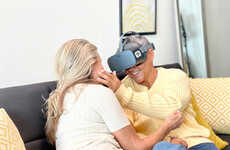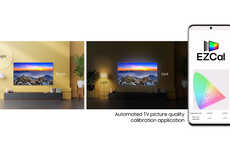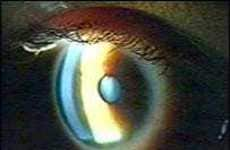
Harvard Study
Going Like Sixty — January 18, 2008 — Science
References: sciencedaily
Change is good. Forced change by the government can be good too. One of the unanticipated spins off of switching TV signals go all digital is the possibility of enhancing the image for people with poor vision. At Harvard Medical School, Dr. Eli Peli, is working on such a project. The development involves changing the contrast on the television signal.
Over 4 million Americans suffer from macular degeneration which makes seeing reading or seeing fine details difficult, and makes watching television nearly impossible.
Over 4 million Americans suffer from macular degeneration which makes seeing reading or seeing fine details difficult, and makes watching television nearly impossible.
Trend Themes
1. Enhanced Contrast Technology - Developing technology to change the contrast on TV signals can enhance the viewing experience for people with poor vision.
2. Digital Accessibility Solutions - Switching TV signals to digital can provide new opportunities to improve accessibility for people with macular degeneration.
3. Medical Innovations in Televisions - The use of televisions for medical purposes, such as enhancing vision, is an emerging area for disruptive innovation.
Industry Implications
1. Television Manufacturing - Television manufacturers can explore opportunities to incorporate enhanced contrast technology into their products for improved accessibility.
2. Healthcare - Healthcare industry can leverage digital TV technology to develop new solutions for vision enhancement in patients with macular degeneration.
3. Digital Accessibility Services - Companies offering digital accessibility services can provide consulting and implementation support for organizations aiming to make their TV signals more accessible.
0.4
Score
Popularity
Activity
Freshness























